Filter by
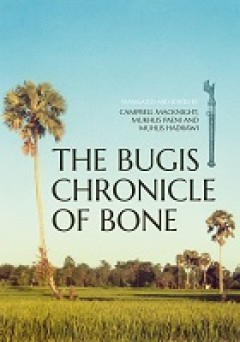
The Bugis chronicle of Bone
"The Bugis Chronicle of Bone is a masterwork in the historiographical tradition of South Sulawesi in Indonesia. Written in the late seventeenth century for a very specific political purpose, it describes the steady growth of the kingdom of Bone from the fourteenth century onwards. The local conquests of the fifteenth century, closely linked to agricultural expansion, give way to the long confli…
- Edition
- -
- ISBN/ISSN
- 9781760463588
- Collation
- X!!, 153 p.
- Series Title
- -
- Call Number
- 958.9 BUG b
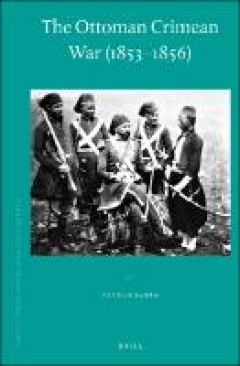
The Ottoman crimean war (1853-1856)
This book analyzes the Crimean War from the Ottoman perspective based mainly on Ottoman and Russian primary sources, and includes an assessment of the War’s impact on the Ottoman state and Ottoman society.
- Edition
- -
- ISBN/ISSN
- 9789004182059
- Collation
- xvi, 432p.: ill.
- Series Title
- -
- Call Number
- 947.073809561 BAD o
Diamonds and war: state, capital and labor in British-ruled Palestine
Based on previously unexamined historical documents found in archives in Belgium, England, Israel, the Netherlands, and the United States, this book is the first in English to tell the story of the formation of one of the world’s main strongholds of diamond production and trade in Palestine during the 1930s and 1940s. The history of the diamond-cutting industry, characterized by a long-standi…
- Edition
- -
- ISBN/ISSN
- 9781789201178
- Collation
- xvi, 354p.: ill.
- Series Title
- -
- Call Number
- 338.477362309569409043 VRI d
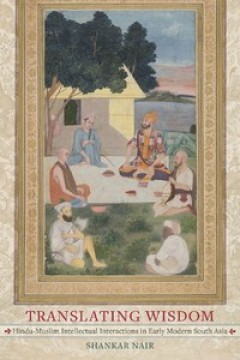
Translating wisdom : Hindu-Muslim intellectual interactions in early modern S…
A free open access ebook is available upon publication. Learn more at www.luminosoa.org. During the height of Muslim power in Mughal South Asia, Hindu and Muslim scholars worked collaboratively to translate a large body of Hindu Sanskrit texts into the Persian language. Translating Wisdom reconstructs the intellectual processes and exchanges that underlay these translations. Using as a case …
- Edition
- -
- ISBN/ISSN
- 9780520975750
- Collation
- XVI, 260 p.
- Series Title
- -
- Call Number
- 294.51570954 NAI t
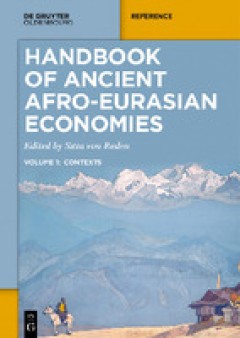
Handbook of ancient Afro-Eurasian economies : volume 1,. contexts
The notion of the “Silk Road” that the German geographer Ferdinand von Richthofen invented in the 19th century has lost attraction to scholars in light of large amounts of new evidence and new approaches. The handbook suggests new conceptual and methodological tools for researching ancient economic exchange in a global perspective with a strong focus on recent debates on the nature of pre-m…
- Edition
- -
- ISBN/ISSN
- 9783110607741
- Collation
- XII, 758 p.
- Series Title
- -
- Call Number
- 330.93 RED h
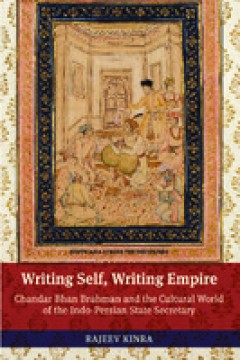
Writing self, writing empire : Chandar Bhan Brahman and the cultural world of…
"Writing Self, Writing Empire examines the life, career, and writings of the Mughal state secretary, or munshi, Chandar Bhan Brahman (d. ca. 1670), one of the great Indo-Persian poets and prose stylists of early modern South Asia. Chandar Bhan’s life spanned the reigns of four emperors: Akbar (1556–1605), Jahangir (1605–1627), Shah Jahan (1628–1658), and Aurangzeb ‘Alamgir (1658–170…
- Edition
- -
- ISBN/ISSN
- 9780520961685
- Collation
- XIX, 371 p.
- Series Title
- South Asia Across the Disciplines,
- Call Number
- 891.5512 KIN w
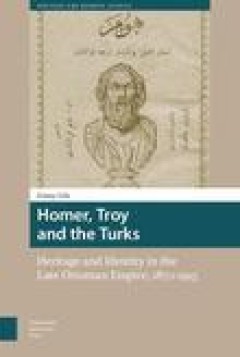
Homer, Troy and the Turks: heritage and identity in the Late Ottoman Empire 1…
Homer's stories of Troy are part of the foundations of Western culture. What's less well known is that they also inspired Ottoman-Turkish cultural traditions. Yet even with all the historical and archaeological research into Homer and Troy, most scholars today rely heavily on Western sources, giving Ottoman work in the field short shrift. This book helps right that balance, exploring Ottoman-Tu…
- Edition
- -
- ISBN/ISSN
- 9789462982697
- Collation
- 219 pages : illustrations ; 24 cm.
- Series Title
- Heritage and memory studies ; 4
- Call Number
- 949.6 USL h
 Computer Science, Information & General Works
Computer Science, Information & General Works  Philosophy & Psychology
Philosophy & Psychology  Religion
Religion  Social Sciences
Social Sciences  Language
Language  Pure Science
Pure Science  Applied Sciences
Applied Sciences  Art & Recreation
Art & Recreation  Literature
Literature  History & Geography
History & Geography